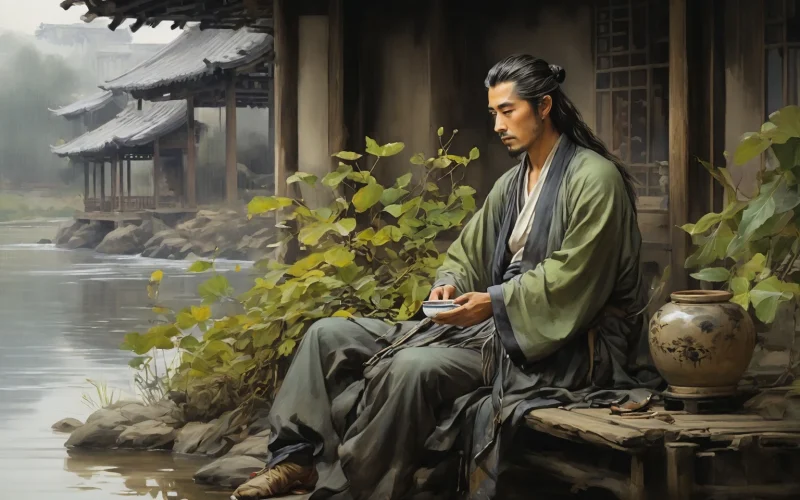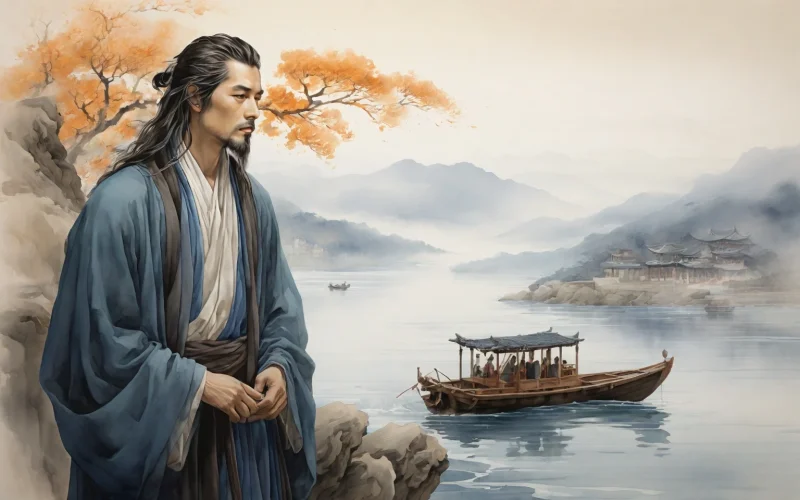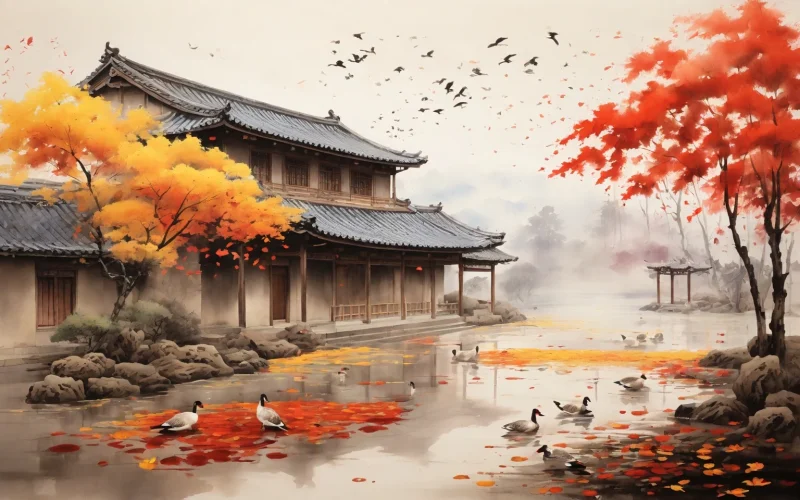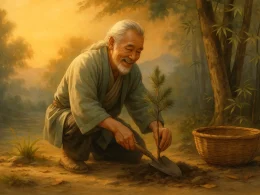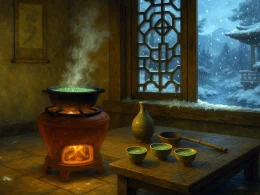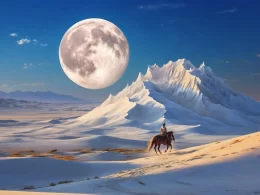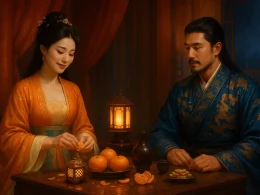No fire is made in empty room on rainy days;
I hear alone the riverside orioles' lays.
Drinking, I gaze on flowers and miss my brothers dear;
On Cold Food Day homeland grass grows green and drear.
Original Poem:
「寒食寄京师诸弟」
韦应物
雨中禁火空斋冷,江上流莺独坐听。
把酒看花想诸弟,杜陵寒食草青青。
Interpretation:
This poem was written in the second or third year of Emperor Dezong's Zhenyuan reign, while Wei Yingwu was serving as the governor of Jiangzhou. It was the Cold Food Festival, and the poet, far from home, was overwhelmed with feelings of loneliness. His homesickness became especially intense during this holiday, prompting him to write this seven-character quatrain filled with fraternal and hometown emotions.
First Line: “雨中禁火空斋冷,江上流莺独坐听。”
(In the gentle rain, the coldness of the Cold Food Festival, marked by the fire ban, fills the empty inn, enhancing its desolation. On the riverbank, orioles fly, while I sit alone listening to their calls.)
The poet uses imagery such as the rain, fire ban, and empty inn to create a lonely and cold atmosphere of the Cold Food Festival, making the surroundings even more desolate. The contrast between the flying orioles and the poet's solitary sitting heightens his feeling of loneliness and emptiness, emphasizing his isolation during the festival.
Second Line: “把酒看花想诸弟,杜陵寒食草青青。”
(I lift my wine to gaze at the flowers, thinking of my brothers far away; at this moment, the fields of Duling must be lush and green, with the Cold Food Festival in full bloom.)
In these lines, the poet uses activities such as drinking wine and admiring flowers to express his attempt to alleviate loneliness. However, his sorrow remains, and his homesickness persists. By mentioning the "Cold Food Festival grass in Duling," the poet merges his nostalgia for home with the festive atmosphere, creating a scene that blends both landscape and emotions.
Features of the Poem
This poem reflects the poet’s delicate emotional transitions and intense homesickness. Through descriptions of the environment, such as the rain, fire ban, and empty inn, the poet skillfully creates a solitary atmosphere. The image of the orioles by the river and the "sitting alone" further express the poet's internal loneliness, and the details of drinking wine and admiring flowers convey his deep yearning for his homeland. The poem intricately blends emotions and surroundings, with the emotional flow feeling natural and unforced.
Overall Analysis
The emotional tone of the poem is consistent throughout. The poet uses scenery to express his feelings, combining the surrounding loneliness with his homesickness. From the "rain, fire ban, empty inn" to the "Cold Food Festival grass in Duling," the poet not only describes the scene but also connects it with his emotional state, creating a rich emotional atmosphere. Particularly, the line "Looking at flowers while drinking, thinking of my brothers" expresses the sadness of loneliness during the holiday, while the mention of the "green grass" elevates the homesick feeling, blending both visual and emotional depth. The poem's poignant mood conveys the poet’s inability to escape his emotions, capturing his solitude and longing.
Insights
This poem deeply portrays the emotions of someone missing their homeland, particularly during holidays and special moments when the feeling of loneliness and homesickness intensifies. Through the poet's delicate depiction of the scenery, the emotions come across naturally without forced sentimentality. For modern readers, this expression of longing and homesickness still resonates, especially when far from home and loved ones, evoking inner reflection and empathy.
Poem translator:
Xu Yuan-chong (许渊冲)
About the poet:
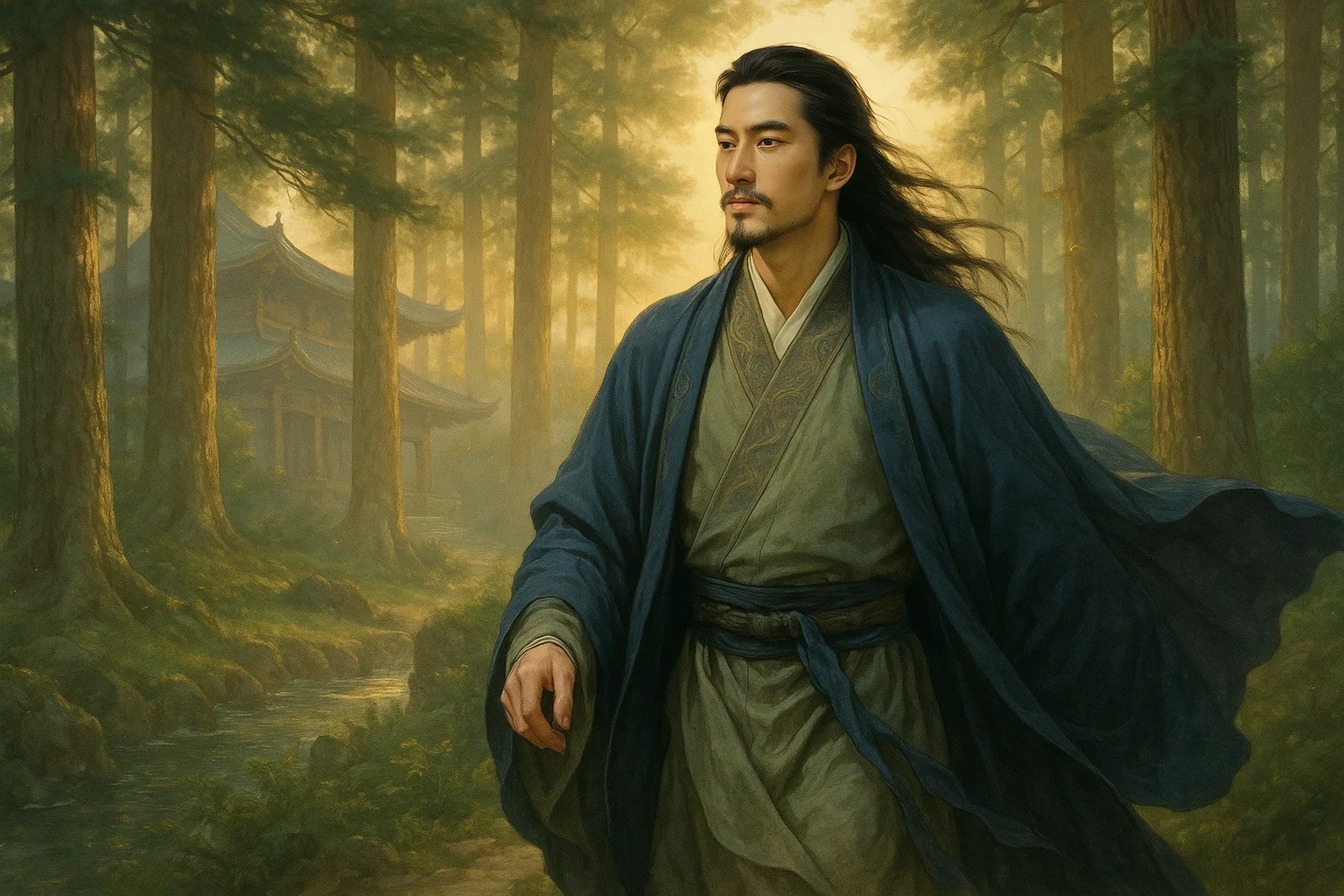
Wei Yingwu (韦应物), circa 737 - 786, was a native of Chang'an, Beijing. His poems were collected in the Wei Suzhou Collection, which included poems concerned with the plight of the people, expressions of disobedience to the times and indignation against the world, and descriptions of idyllic landscapes, etc., of which the ones describing idyllic landscapes are the most famous, and have been sung by posterity in particular.






